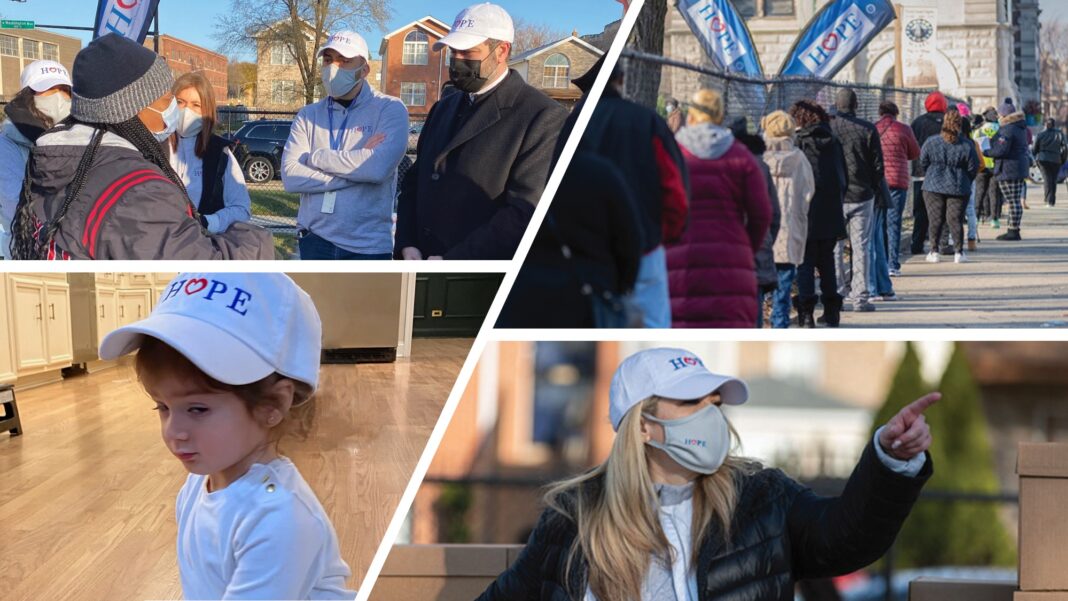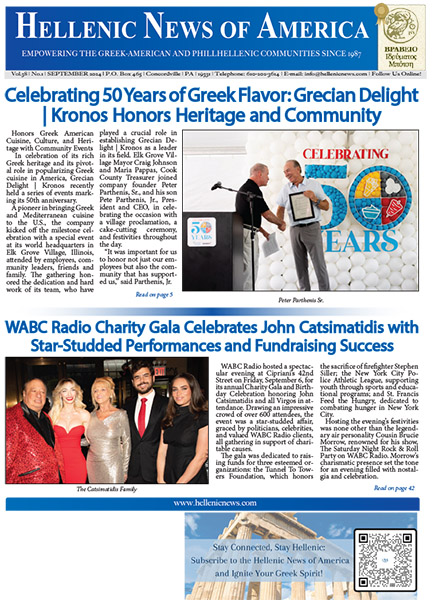Special to the Hellenic News of America
It began with a simple goal in mind: Look for a way to keep all parishioners and especially the younger generation actively involved in the life and spirituality of the Greek Orthodox Church.
Younger generations have felt separated from the Greek language spoken in church for some time and have had some changing views on traditional religion.
Millennials were searching for meaning in their faith and active ways to connect.
Helping those most in need is a religious concept most people can understand, giving believers plenty of opportunities to be active and connect with others.

So, in March of 2020, the His Eminence Metropolitan Nathanael of the Greek Orthodox Metropolis of Chicago announced the launch of a new hands-on ministry: Project HOPE.
This ministry would collect and distribute food and provide stable housing to families and individuals in need in the Chicago area.
Project HOPE (the HOPE stands for Humanitarian Outreach and Philanthropic Engagement) would partner with Chicago Metropolis’ 58 parishes in its six-state area as well as with local nonprofit networks to fulfill its mission.
In this way, the ministry enriches not only those whom it serves, but the people, especially the youth of the church community, have an opportunity to be actively involved.
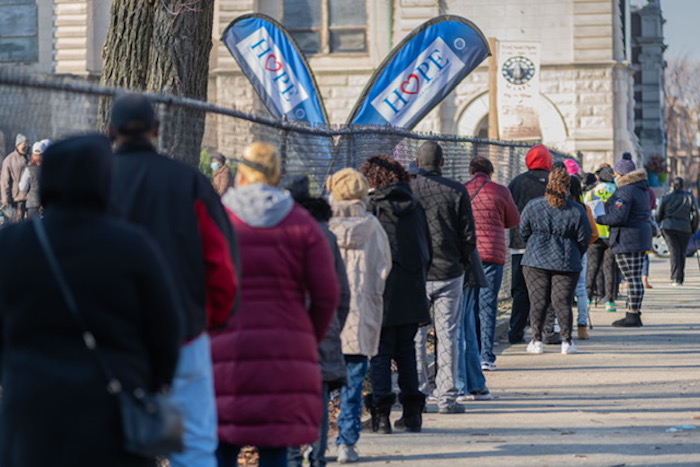
“Project HOPE exists both as a method to provide humanitarian aid to those who require it, and as a calling to our brothers and sisters too, according to the Holy Gospel, harness their gifts to serve others and faithfully administer God’s grace,” said Yanni Sianis, Project HOPE Chairman “Throughout the life of this ministry, we pledge always to maintain both these imperatives.”
In its first year of operation, Project HOPE delivered and provided over 50,000 meals to people in need.
Meal bags are assembled by volunteers on the campus of the National Hellenic Museum Friday mornings. The museum offers space to store and organize food for delivery.
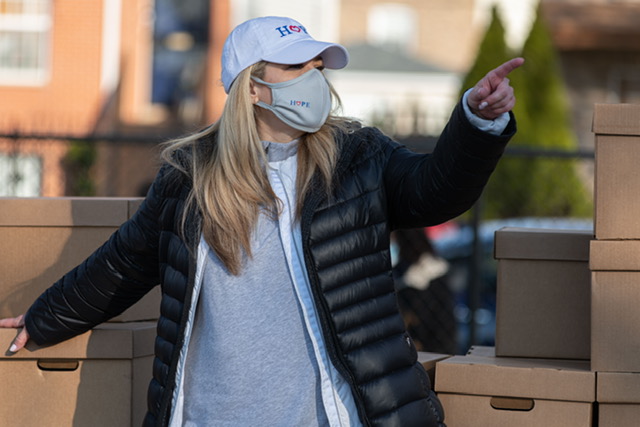
Project HOPE also tackles the COVID-19 crisis by assembling and distributing COVID-19 Kits for the homeless that include sanitizer, masks, water bottles, snacks, rubber gloves, deodorant, and dental and feminine hygiene products.
During Thanksgiving, Project HOPE partnered with a community engagement program at Rush University Medical Center to support the hard-hit and poverty-stricken West Garfield Park community
Their Layers of Love program in the winter offered homeless living on the street packets of thermal clothing to keep them warm, along with ready-to-eat meals.
It has provided manpower and resources for other organizations that serve those in need in the Chicago area, like the Chicago CRED, Deborah’s Place, and the Lincoln Park Community Center.

“What started as a food program in a church basement is now a broader ministry of our Holy Metropolis that provides care to the most vulnerable in the Chicago area,” said His Eminence Metropolitan Nathanael. “I am proud of the leadership and hard work of the laity and clergy who established Project HOPE as a living expression of Christian love…”
The Project HOPE initiative was brought to life through the Strategic Leadership and Transformative Action executive education program at the Fletcher School of Tufts University. Funding was provided by FAITH: An Endowment for Orthodoxy and Hellenism.
A 10-member committee was formed, with Sianis as Chairman, to oversee operations of the new ministry. Father Chrysanthos Kerkeres actively serves on the committee as a spiritual and strategic advisor.
Sianis said they are starting simply, as they focus on where the need is greatest, building the ministry slowly for long-term stability and sustained growth, as it moves beyond the Chicagoland area.
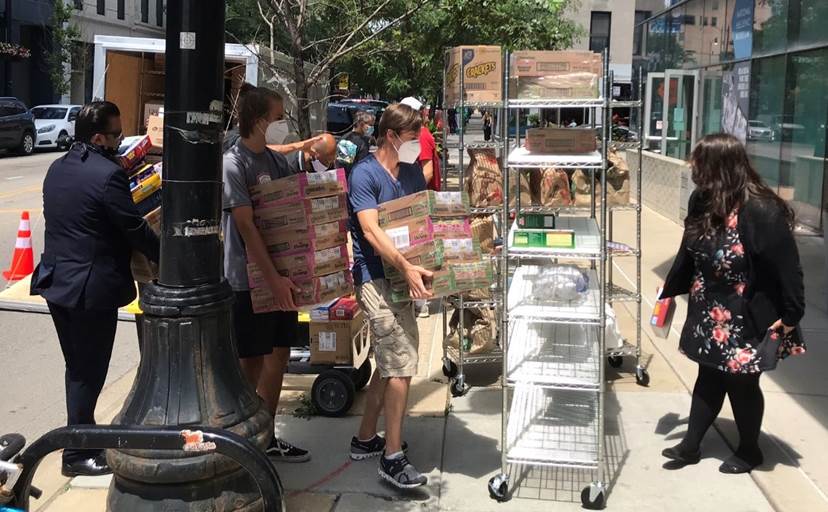
Project HOPE does not solicit for funds but instead asks for people to become partners and volunteers. One hundred percent of any money, goods or services received at Project HOPE is used solely for the people they serve.
Sianis refers to Project HOPE as a catalyst for other people’s philanthropy.
He described it as the collective, philanthropic, humanitarian home for the Metropolis, as it supports other ministries in the parishes.
“There’s a lot of great work in ministries that have been done for decades and decades at all these parishes,” says committee member Dena Pavlopoulos.
Project HOPE collaborates with the Greek Orthodox Ladies Philoptochos Society, for example, which conducts its own charity works.

There are liaisons from Project HOPE that coordinate with local parishes, collecting food, organizing volunteers, and determining what the needs are at the local level.
The effort creates a united front through the entire Chicago Metropolis, creating a community that is reaching out to help internally and externally.
“We’re trying to institutionalize this…to outlast myself and the rest of the people for the next generations to come.”
Project HOPE also collaborates with different religious sects, neighborhood and minority groups, and nonprofits to give hands-on help where it is needed.
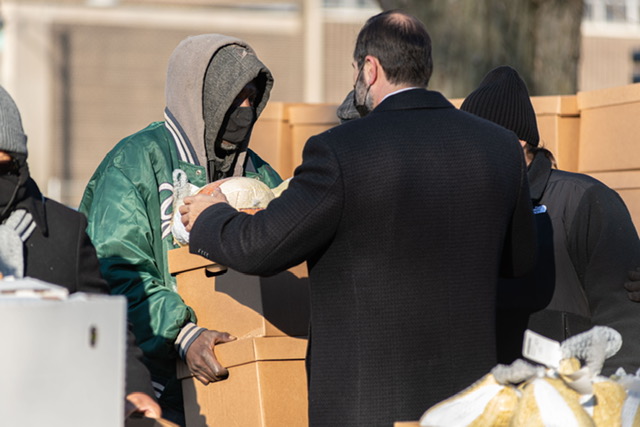
“We collaborated with other organizations in the past that have already identified those most in need,” HOPE committee member Lori Chiampas said.
There are, intentionally, a diversity of recipients—senior citizens, orphans, battered women, homeless teens. The list goes on.
“What you do for the least of my brethren” did not mention specific groups, Sianis points out.
Metropolis Nathanial has placed great importance on re-engaging the church community to get involved and help those in need, Sianis says.
That means going to shelters, going to neighborhoods, visiting people living out on the streets and viaducts.
“You see the struggle that exists that we don’t see on a day-to-day basis,” Lainey Manos of the HOPE committee says.
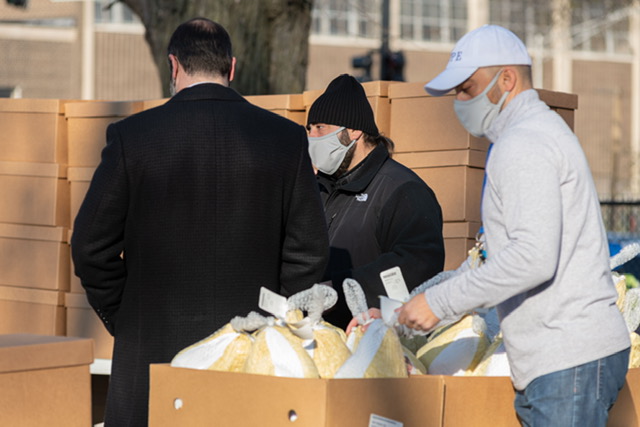
Volunteers come from the parishes, but the effort also extends to the greater Hellenic community.
Donated hot meals may come from restaurant owners. Non-perishables come from food markets. Other businesses also contribute.
It has been a positive experience for the volunteers, the donors, and the recipients.
“We have a handful that have really stepped up and contributed at the initial phase. And now we are out asking for a commitment for the next layer,” Sianis says, all keeping with the idea of making the ministry sustainable.
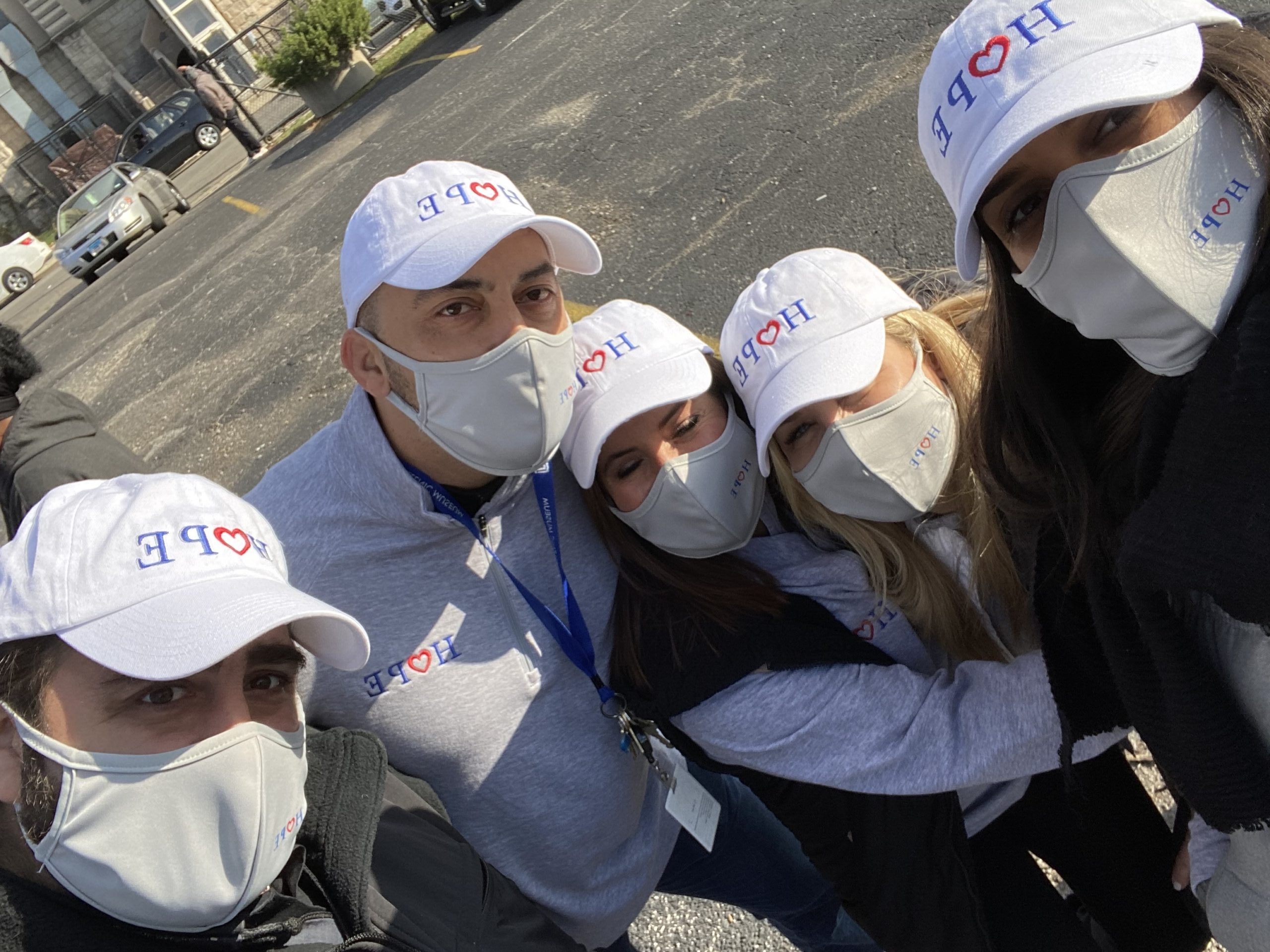
He emphasizes that they are looking for more than just a person to write a check.
“Come experience it on your own. We want you to partner with us,” he says. “That way you get someone who’s engaged in the long term and that’s how you really build a program.”
To find out more, or to donate, visit www.chicago.goarch.org/hope.





